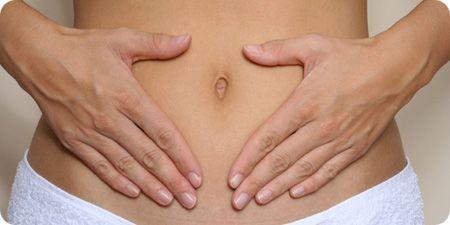Noticed a swelling in the tummy? Pain passing urine or in the lower abdomen? Pain during sex? Any of these problems can be caused by fibroids within the womb. There are several other causes for such problems, so it’s best to check with a health official before self-diagnosing. Here we let you know some more about the common problem of fibroids, and how to treat them naturally.
Contents
What Are Fibroids?

The term fibroid is used to describe benign growths inside the womb. This means that whilst they are not cancerous, they can still cause a lot of pain and distress and if they remain untreated they can lead to infertility. Other names include uterine myomas, fibromyomas or leiomyomas, and fibroids is a generic term for any non-cancerous growth in the uterus. They vary in size from being as tiny as a pea to being as big as a honeydew melon. A huge 25% of women develop one or more fibroids in their lifetime, but many will never know that they are there.
Comprised of an overgrowth of smooth muscle cells, fibroids are linked to hormones, and seem to become pronounced during pregnancy when the hormones in the body change. Similarly, they shrink after the menopause have started, which indicates their intrinsic link with hormonal changes.
Who Is Affected By Fibroids?
Usually developing in women aged between 30 and 50, fibroids are sometimes passed genetically. So if your mother suffered, there is a higher risk that you will. This is not the case across the board, though. A higher rate of fibroids are recorded in heavier women. If you weigh over 70 kg (11 stones) then you are at more of a risk of being diagnosed. Research suggested that this is down to the higher levels of oestrogen present in obese and overweight women.
What Are The Symptoms Of Fibroids?
Many women do not have any symptoms and only discover the fibroids when they are having a routine examination, or a scan in the same area. The common symptoms are heavier bleeding or more painful periods; bloating or swelling of the stomach, which can lead to lower back pain; bladder or bowel issues, such as pain on passing urine, more frequent urination and occasionally constipation; pain during sex when the fibroids are too close to the vagina or cervix; and miscarriage or problems achieving fertility. The fibroids can develop in the fallopian tubes, which then obstructs eggs from growing properly.
Many women do not realise they have fibroids at all.
What Treatments Are There For Fibroids?

There are several options for women who are diagnosed with fibroids. There are a range of medications which attempt to help shrink the growths, and these have had varying reports of success. Whilst they may eradicate the current fibroids, they cannot guard against recurring ones in the future. Sadly, many women who have experienced fibroids once will develop them again. Medication used is also essentially adding different hormones to the body to counter the ones that have created the fibroids in the first instance. This can lead to becoming dangerously overweight, and incur other side effects such as dizziness, dry mouth, sweating and difficulty swallowing.
Other options to get rid of fibroids include surgery, such as a hysterectomy, where the entire womb is removed or a myectomy, where the fibroids are removed from the womb, but the rest is left intact. These can be expensive and dangerous, and are usually only used when the fibroids are having a significant impact on the quality of life.
Regulating hormones through diet and exercise can be an effective and risk free way to ensure fibroids stay at bay. Fibroids Miracle offers a wealth of adviciboe and strategy into reversing fibroids once and for all by starting with treating the root of the issue. Order today and get started on being a new, healthier you!d
